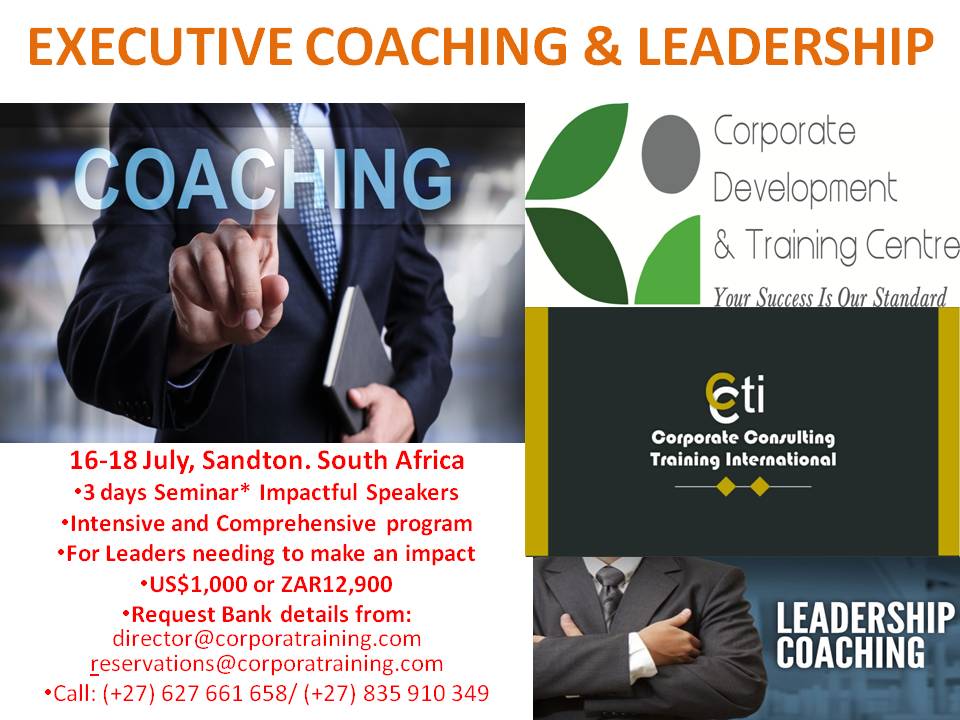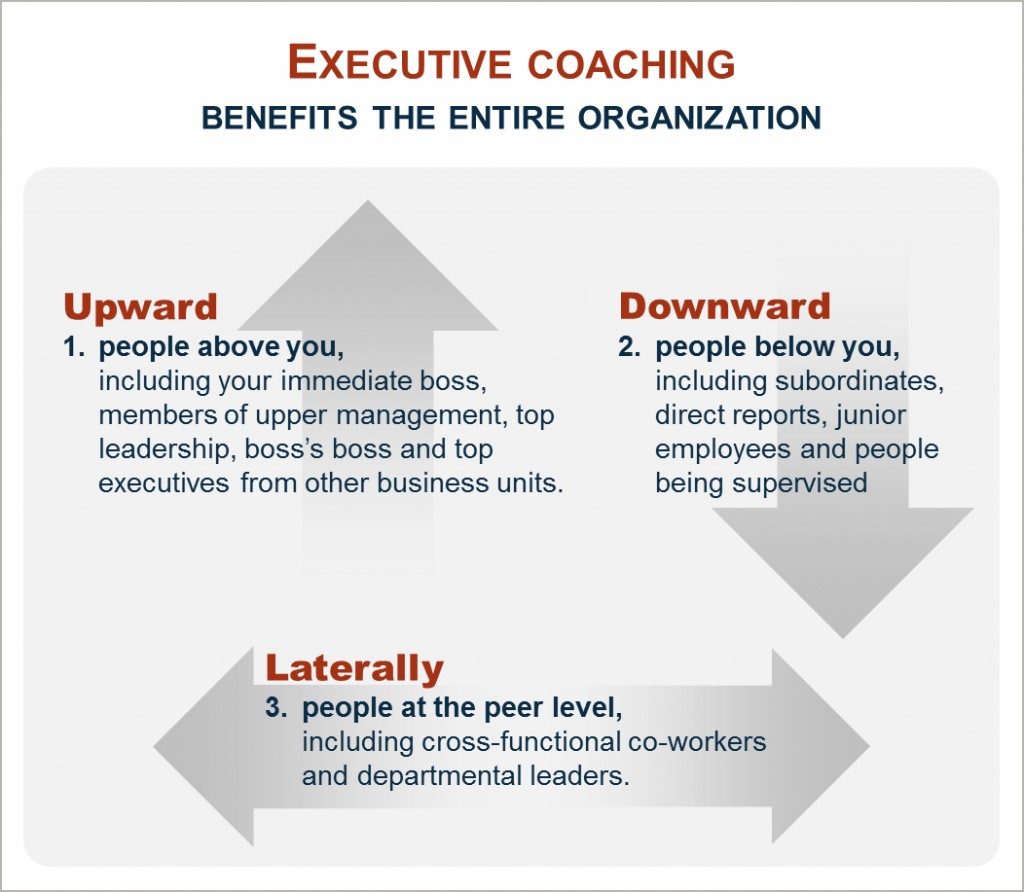CCTI WILL TRAIN TOP EXECUTIVES WITH THE HELP OF RENOWNED SPEAKERS AND PROVEN METHODOLOGIES
“Executive coaching is a facilitative one-to-one, mutually designed relationship between a professional coach and a key contributor who has a powerful position in the organization…The coaching is contracted for the benefit of a client who is accountable for highly complex decisions with wide scope of impact on the organization and industry as a whole. The focus of the coaching is usually focused on organizational performance or development, but it may also serve a personal component as well.”
Summary findings from the International Executive Coaching Summit, October 1999
Why should you hire an Executive Coach?
In today’s demanding business environment (cost pressures leading to flatter organizations, executive managers with more direct reports, “speed to market” as a competitive advantage with time pressure, etc.) executives have limited opportunity to devote time and energy to their own development as leaders. “Most executives struggle to fulfill the responsibilities of their positions and are too busy and too stressed to step back and learn from their experiences or to implement changes to satisfy best management practices.”
The reasons for choosing coaching go beyond the need to correct or resolve problem behaviors or poor performance issues. Executive coaching is also chosen to develop executive-level skills, developmental and growth needs which impact the entire organization.
In a study by Diane E. Lewis, respondents identified a variety of reasons for hiring executive coaches. The reasons cited below encompass both problem solving and developmental emphases. They could also be described as change-oriented, with an emphasis on supplementing and refocusing the participant’s skills, or growth-oriented, with an emphasis on accelerating the learning curve for high-potential or recently promoted executives. The percentage of respondents citing that particular reason is in parenthesis:
- To develop the leadership skills of high-potential individuals (86%).
- To improve the odds that newly promoted managers would be successful (64%).
- To develop management and leadership skills among their technical people (59%).
- To correct behavioral problems at the management level (70%).
- To help leaders resolve interpersonal conflicts among employees (59%).
“Coaching is not telling people what to do; it’s giving them a chance to examine what they are doing in light of their intensions.”
James Flaherty “Coaching: Evoking Excellence in Others”“The essence of executive coaching is helping leaders get unstuck from their dilemmas and assisting them to transfer their learning into results for the organization.”
Mary Beth O’Neill “Executive Coaching with Backbone and Heart”
THE PROCESS OF EXECUTIVE COACHING
PART OF THE ACTIVITIES WE CONDUCT




